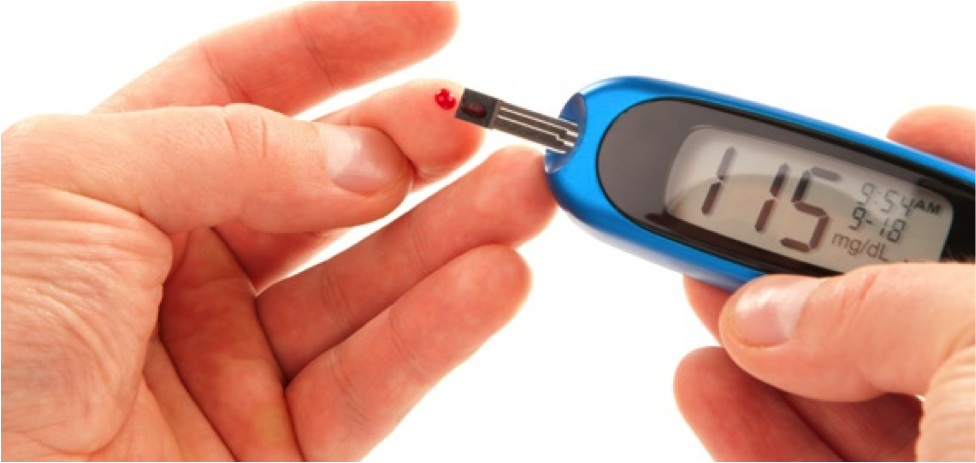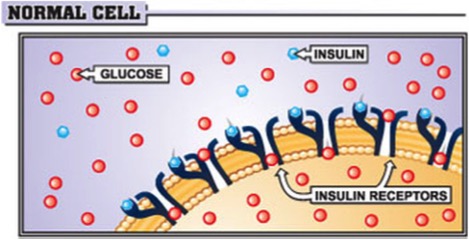Blood sugar, also known as blood glucose, plays a key role in health, weight loss, performance, disease risk and life itself. When blood sugar drops too low, we go into a coma and would, eventually, die. Contrastingly, if blood sugar levels stay elevated it can lead to serious health issues.
Millions of our cells are also fueled by our blood sugar, which is the body’s most basic and readily available fuel source.
While normal blood sugar levels play an important role in all our bodily functions and health, if those levels elevate or fall, it can cause serious health issues and in severe cases, even death.
Unless you have a specific condition such as type 1 diabetes, the biggest worry is chronically elevated blood sugar levels which can lead to metabolic disease, obesity and many other life-threatening health issues.
Whether you want to optimize health, improve sports performance, lose weight or just feel better day to day, then controlling your blood sugar is one of the best steps you can take.

How Blood Sugar Works
To get an understanding of what blood sugar is, it’s helpful to know what happens when you eat. Let’s take eating a banana as an example.
Through digestion, your body breaks down the banana into usable components that travel in your blood. One of these components, glucose, (hence the name, blood glucose), is then formed and is the most readily available source for all types of activities, exercise and bodily processes.
But it doesn’t stop there; glucose requires an escort to elicit many of its effects. This hormone is called insulin, which is made in the pancreas and acts as transport for carrying glucose around the body to our cells. Put simply, think of insulin as the “key” that unlocks the door to your cells to allow glucose inside.
When all is well, the cells in your pancreas make the correct amount of insulin, and the sugar in the blood gets stored properly or utilized by tissues such as skeletal muscle.
However, when your body’s cells do not interact well with the hormone insulin and the sugar is not stored in the tissues, your body is said to be in a state of insulin resistance. This might also be described as having poor insulin sensitivity.
{{cta(‘8c7c8cff-00e5-4cb0-844a-5352a5b5029f’,’justifycenter’)}}
The result? Glucose stays in the bloodstream and the glucose level builds up in your blood. This condition is known as hyperglycemia, or high blood glucose, a hallmark condition of diabetes and other serious diseases.
The effects of elevated blood sugar levels are serious and elicit negative effects in both our short and long-term health.

The Short Term Effects
When there’s too much glucose in your blood, your body tries to compensate, which can result in the common symptoms of diabetes (1, 2)
- Extreme thirst
- Dehydration
- Unplanned weight loss
- Increased hunger
- Excessive urination
Apart from these medical issues, daily alterations in blood sugar can cause noticeable symptoms. The most common of these include changes in energy, headaches, tiredness after a meal or poor focus, (often in the afternoon), mood changes, light headiness and weakness.
At some point, most people will have experienced some or all of these symptoms. Among the general population there will be many who may even experience this every day as they have impaired blood sugar management, combined with a sedentary lifestyle, and may also have excessive carbohydrate intake too.
When experienced on a daily basis it can have a profound effect on quality of life and burdens many people with chronic fatigue, tiredness and low energy. This becomes a major issue when they try to lose weight or improve their lifestyle, as they are unmotivated to train or to eat well and so reach for high sugar comfort food.
Become a Certified Holistic Nutritionist Online in 6 Months or Less
Longer-Term Effects
If blood sugar remains uncontrolled the long-term consequences can be serious. When sugar remains in the bloodstream, the result over time is damage to the vessels, nerves and organs (3).
Potential consequences include blindness, kidney disease, nerve damage and limb amputation, obesity, diabetes and more (3, 4).
As mentioned, the overall health of the body is put at a much greater risk of developing chronic diseases that reduce quality of life and increase the risk of an early death.
In fact, many researchers and health organizations believe this condition to be one of the western world’s most serious modern day health issues.
Uncontrolled blood sugar is also a key factor in a condition called “metabolic syndrome” (5, 6). The other factors that are often paired with insulin resistance are elevated triglycerides and low high-density lipoprotein cholesterol, and high blood pressure. Again, this is one of the leading causes of death in modernized, western countries.
As a result of all these factors, the risk of developing heart disease, high blood pressure, diabetes and strokes is significantly increased (5, 6).
Chronically elevated levels of blood sugar may enhance the growth of abnormal cells and change the metabolism of normal cells, which drive the development of cancer. In addition, a low level state of inflammation may lead to increased oxidative stress and the development of many serious diseases (7, 8).
It doesn’t stop there either, with research showing many other diseases are linked to insulin resistance and impaired blood sugar regulation. They include:
- Alzheimer’s Disease (9)
- Non-alcoholic fatty liver disease (10)
- Arthritis (11)
- Polycystic Ovarian Syndrome (PCOS) (12, 13)
Usually, uncontrolled blood sugar is a result of obesity (14, 15). . However, having uncontrolled blood sugar can exacerbate the problem and make you gain even more weight (16).
Summary
As you can see, excessive blood sugar levels create a vicious circle of fat gain, ill health and increased disease risk.
If you want to lose fat, improve health or reduce disease risk, then optimizing blood sugar levels should be one of your top priorities. To start, focus on the fundamentals of a healthy diet and exercise, such as eating primarily whole foods, high protein and regular, high intensity exercise.
From there, other aspects such as daily stress, your sleep, advance training techniques and certain supplements may all help to improve it further.
To learn the most research proven methods to increase insulin sensitivity and blood sugar control, take a read of part 2 in the series: How to Optimize Blood Sugar Levels.




